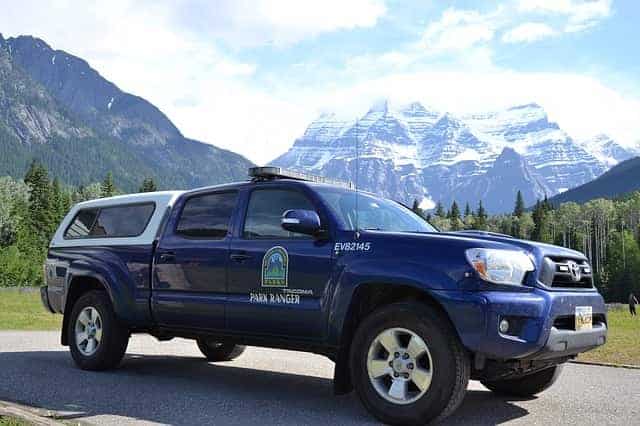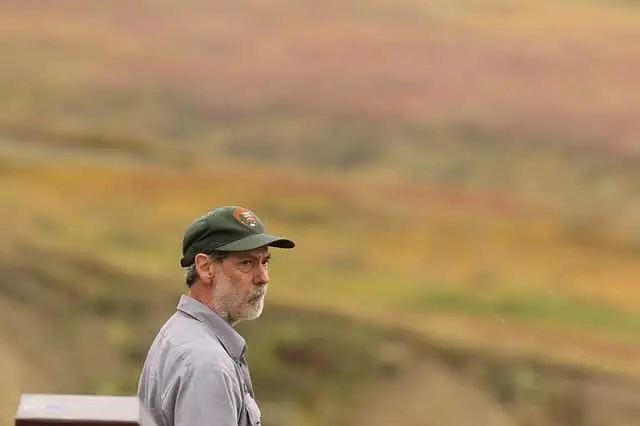When it comes to the great outdoors, figuring out who is in charge of the area you are in and what the rules are is incredibly important. Often game wardens are the ones enforcing laws when outside. But how much authority do these game warden’s actually have?
Game wardens are law enforcement officers that specialize in laws relating to the outdoors and natural resources. Game wardens have jurisdiction to enforce local, state and federal laws which makes them among the highest authority officers in a state.
Understanding what game wardens are and what they do can be confusing for those just learning about them. Read on to learn more about game wardens, what they are, what authority they have, and how they compare to normal police.
Table of Contents
- Game Wardens Explained
- What Are the Powers of Game Wardens?
- Does a Game Warden Have More Authority Than a State Trooper?
- Are Game Wardens Above Police?
- Why Do Game Wardens Have So Much Authority?
- Why Are Game Wardens Important?
Game Wardens Explained
To understand the authority of game wardens, it is important to understand what they are and what place they hold in the US legal system. Under US law, there are a number of laws relating to nature and what you can do in it.
Many of these laws are incredibly specific and change from season to season, making it hard for someone to keep up with, follow, and enforce these laws year-round. For this reason, game wardens were created.

Game wardens, sometimes called wildlife officers, are a special type of law enforcement officer who specializes in this subset of local, state, and federal laws. They most often enforce hunting and fishing laws, but also are responsible for managing wildlife and their ecosystems.
Game wardens, for the most part, are employed by state agencies.
Though these agencies vary by name, they are often called the Department of Fish and Game, the Department of Environmental Conservation, the Wildlife Resources Commission, or something similar in nature.
Some game wardens are employed by the federal government. The wardens, most commonly known as special agents and federal wildlife enforcement officers, work for the U.S Fish and Wildlife Service, a division of the U.S. Department of the Interior.
What Are the Powers of Game Wardens?
Now that we understand what game wardens are and who they work for, you might be thinking to yourself, “What are the actual powers of game wardens? Do they have the same powers as police officers?”
For the most part, game wardens have the same power as regular police officers. They have the same power to make arrests, seize property, investigate crimes, and write tickets. Unlike the regular police officer, however, game wardens often have a larger jurisdiction.
Important to note, however, is that game wardens do not have unlimited power. When enforcing laws, they are required to, in almost every case, follow the same rules as police officers.
Game wardens can make arrests but may be required to read you the Miranda Warning per Miranda v. Arizona. Game wardens can not discharge their weapon unless it is objectively reasonable, and can’t just walk into your home and open your cabinet because they feel like it.
However, game wardens are given more discretion when enforcing laws because of what is called the open field doctrine. In nature, animals do not follow signs that say “no trespassing” and may enter a private property that is adjacent to public lands.
In this case, game wardens are permitted to enter private property to investigate legal violations.
The open field doctrine applies to any space that is not within what is called one’s curtilage, that is, the area immediately surrounding a dwelling.
This means that if you have your car parked in the open field, a game warden has the authority to look in it to ensure you are following conservation laws. Though some states have made laws rejecting the open field doctrine, the Supreme Court found in Hester v. the US that this does not violate the Fourth Amendment.
Does a Game Warden Have More Authority Than a State Trooper?
When thinking about game wardens, it seems like their powers extend far beyond those of police officers. This isn’t true, as game wardens just have slightly different powers. But do game wardens have more authority than a state trooper?
A game wardens’ authority is comparable to that of a state trooper. Game wardens, just like state troopers, have jurisdiction over the entirety of the state so that they can enforce conservation laws evenly everywhere.
Game wardens don’t have more authority than a state trooper with the exception that game wardens are able to utilize the open field doctrine every day in their job.
Technically, because game wardens are just like any other officer except that they are specialized in conservation law, both police and state troopers could use the open field doctrine if they were to enforce conservation laws.
The difference, however, is that in most cases, state troopers and other police officers work in developed areas where most of the space is under one’s curtilage. This prevents them from using the open field doctrine.
Game wardens, alternatively, spend almost all of their time in the open field, allowing them to use this doctrine. If they were in a city or on a highway, such as a state trooper, they would be subject to the same rules.
Are Game Wardens Above Police?
Sometimes, when considering law enforcement, it is easiest to think of police operating within a hierarchy. Some police organizations are higher up on this hierarchy than others. If this is the case, are game wardens above police?
Game wardens, depending on who they work for, have more authority than that of a municipal police officer, but are equal to that of a state trooper. If a game warden works for the federal government then they would have similar authority to that of a federal law enforcement officer.
The only reason that game wardens are placed higher than municipal police is that they have a wider jurisdiction. Municipal police only have jurisdiction within the town or city they work.
Game wardens most frequently work for the state, not the municipality, and thus have statewide jurisdiction. If the game warden works for the federal government, then they have jurisdiction nationwide, making them higher than state troopers.
Why Do Game Wardens Have So Much Authority?
After looking at the power of game wardens and the ability to use the open field doctrine, you might be wondering why game wardens have so much authority.
Game wardens have so much authority because their jobs and the actions of those in nature are so unpredictable. While US law recognizes the concept of private property, animals in nature do not. This makes the job of game wardens much more difficult and less predictable.
Humans, compared to animals, are relatively predictable. We live in a certain area, go to work or school, go to other places to purchase goods or services, and return home.

While we might break the law, we as a species generally aren’t nomadic.
Animals, alternatively, are much less predictable. While it is true that they might stay within a certain ecosystem, animals don’t necessarily return to the same spot every time and are constantly on the move in order to protect themselves from predators and find the resources they need to survive.
For this reason, game wardens need to have the authority to adjust to the environment they are required to be in to do their work and thus are given broader discretion.
The other reason game wardens may appear to have so much authority is the fact that they use the open field doctrine every day.
Nature is not domiciled, and thus, Fourth Amendment protections of private property do not apply, because very little in nature is private property. Because game wardens are less confined to Fourth Amendment requirements in their jobs, they appear to have a lot of authority.
Why Are Game Wardens Important?
Though people might understand what a game warden is and what they do, they might not understand why game wardens are so important in the United States.
Game wardens are incredibly important because they provide nature its first line of defense from humans. Our society is incredibly reliant on what nature offers us. They ensure that nature is protected from damage or overuse, allowing society to use it in the future.
Almost everything we rely on in modern life relies on having a healthy natural habitat.
The clean water we drink, the food we often eat, and the resources we use to build our society all come from nature. If game wardens were not there to protect nature, the salmon you ate last night might be infected, the water I’m drinking could be dirty, and the building I am in couldn’t be built.
Conservation laws are important not only so we can protect our earth, but also so that we can ensure that society is able to continue to function. Game wardens do the hard work of making sure that nature and its resources are safe for generations to come.






